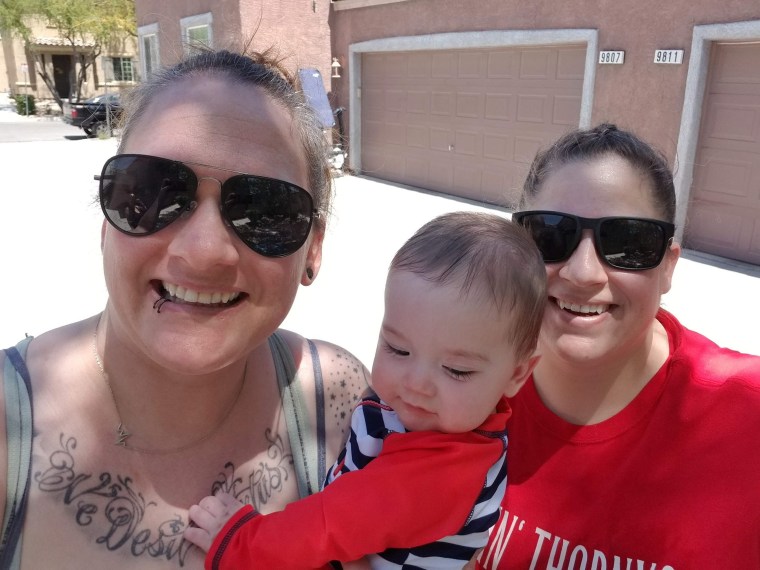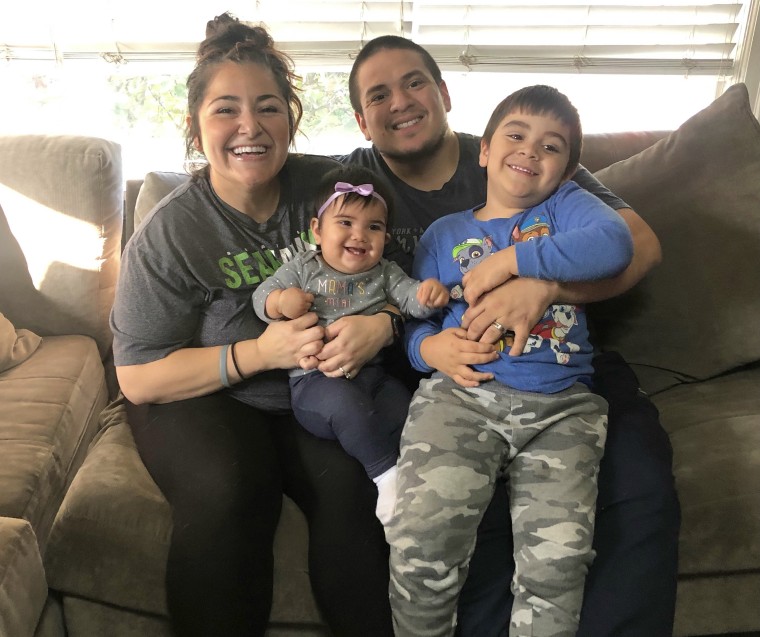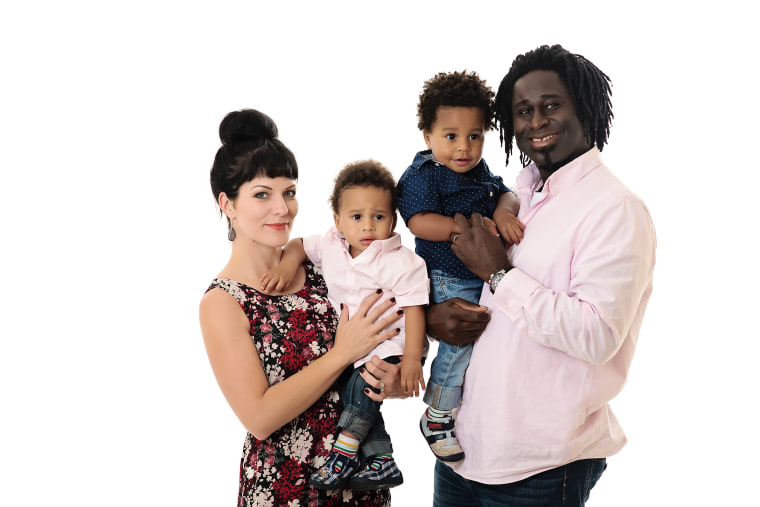Last spring, Amy Malofy faced a tough choice: put her infant daughter and her immunocompromised in-laws in danger of contracting COVID-19, or quit her job.
Malofy had just returned to her position at a call center in February after finishing four months of maternity leave. On workdays, her in-laws took care of baby Penelope. Then, as the coronavirus pandemic descended on the United States and required people to quarantine, Malofy was forced to reevaluate her employment situation.
“Neither my wife or I felt comfortable putting my in-laws in danger because I was working in a call center,” the 36-year-old Las Vegas resident told TODAY Parents. “So, because day care was out of the question, the decision was made for me to walk away from my job.”

Malofy’s story is not unique; coronavirus job losses have been hitting women harder than men for months. More than 865,000 women dropped out of the workforce in September alone, deepening what’s being described as the nation’s first female recession. And a new survey of more than 700 working moms has found that nearly three out of four of them believe COVID-19 has stunted their careers.
“Moms lacked real, substantial, systemic support long before they were forced to endure the ongoing ramifications of this public health crisis,” said Katya Libin, chief executive officer and co-founder of HeyMama, an online community of entrepreneurial and working moms that conducted the survey along with the work referral network Inkwell.
“Moms are paid less than dads, are discriminated against during and after pregnancy, and aren’t afforded mandatory paid family leave (or) access to affordable child care,” Libin continued. “We’re faced with a perfect storm of inequality in the workplace, and at home, that can and does cost moms their careers.”
Download the TODAY app for the latest coverage on the coronavirus outbreak.
Vanessa Romero, a 35-year-old mom of two in Seattle, is not yet sure whether COVID-19 has permanently ended her career. Before the onset of the pandemic, Romero was working 30 hours a week as an airline customer service agent at Seattle-Tacoma International Airport. She also was caring for a newborn who struggled with health issues, and an elderly mother with high-risk pre-existing conditions.
“I would cry in the shower every day,” Romero told TODAY Parents. “It was exhausting. I was burnt out physically and emotionally. I did not want to be responsible for possibly spreading this disease to my family or loved ones.”
So, like so many working moms, Romero left her job. And now, after months of sheltering in place and relying on her husband’s income, she has no idea whether she will return.

“I thought I would have to go back this month and was having severe anxiety about it. Luckily, my leave got extended even longer,” she said. “Of course, I would like to go back to my job eventually. I love it. But the health and safety of my family is worth more than any job. I’m not willing to risk it.”
In the same Inkwell and HeyMama survey, 50% of the working moms who responded revealed that they will not be able to return to work in the same capacity post-pandemic. And in a recent Associated Press-NORC Center for Public Affairs Research poll, 47% of households who have experienced job loss said they do not believe those jobs are coming back.
Even before the economy began faltering in 2020, working moms were carrying heavy burdens. Many working mothers still handle the majority of child-rearing and household responsibilities. That means the choices made by moms like Malofy and Romero aren’t really “choices” at all, Libin noted. Instead, they’re inevitable outcomes for working moms who find themselves in impossible situations — and not just in the United States.
“With no family living around, I had to reduce work hours,” said Ivana Poku, a “happy motherhood” life coach and 36-year-old mom of twins who lives near London, England. “We did not really have much of a choice, to be honest.”
Poku said reducing her work hours during the pandemic has not negatively impacted her family’s finances in a serious way — something she’s “extremely grateful” for, as she knows countless families cannot say the same. For instance, across the United States, as many as 40 million people face possible eviction by the end of the year, and one in four Americans are skipping meals or relying on food banks to feed their families.

Still, Poku said not everything about the current situation is bleak. She argued that the pandemic is giving people a chance to re-imagine the workplace — especially as it pertains to mothers — and find a more sustainable work-life balance that benefits everyone.
“When the pandemic started, I was only able to work two or three hours a day, when I was lucky, which was extremely challenging,” she told TODAY Parents. “However, I was kind of forced to find a way to balance work-family life so I could help other mums who struggled. And I did find the way!
“Once I started to prioritize — once I stopped multitasking and focused on one thing at the time — it made a massive difference, and working ... became manageable.”
Watch TODAY All Day! Get the best news, information and inspiration from TODAY, all day long.
Related video:


